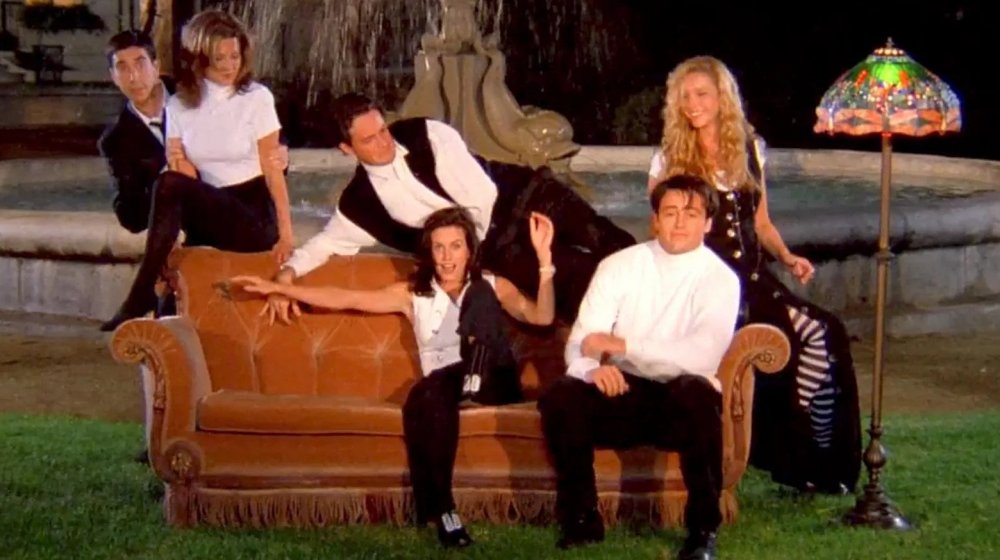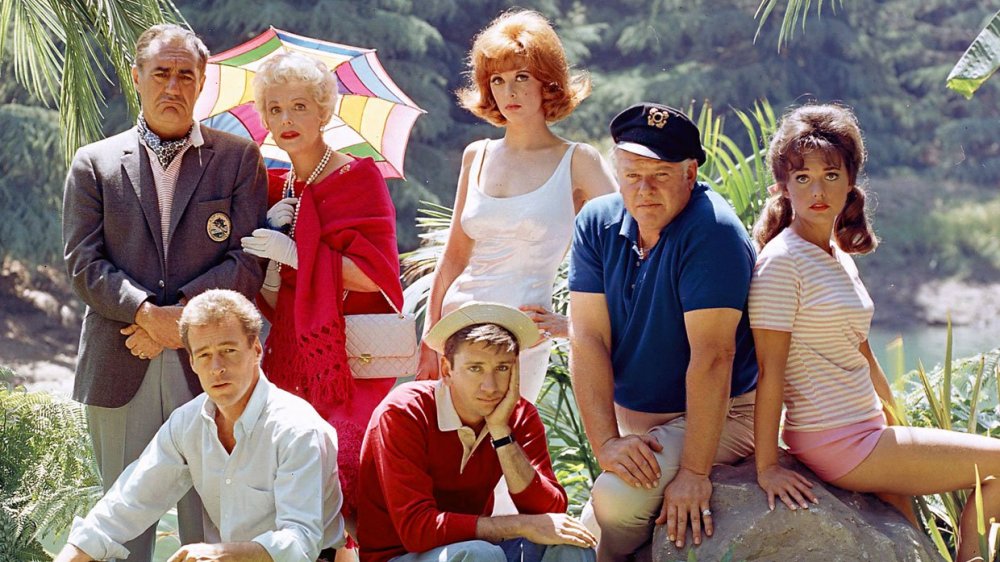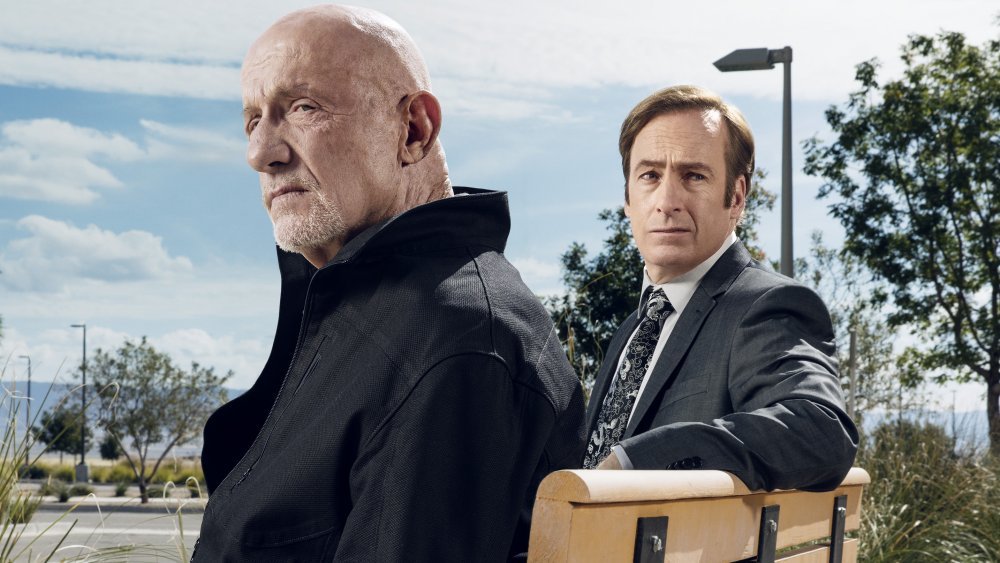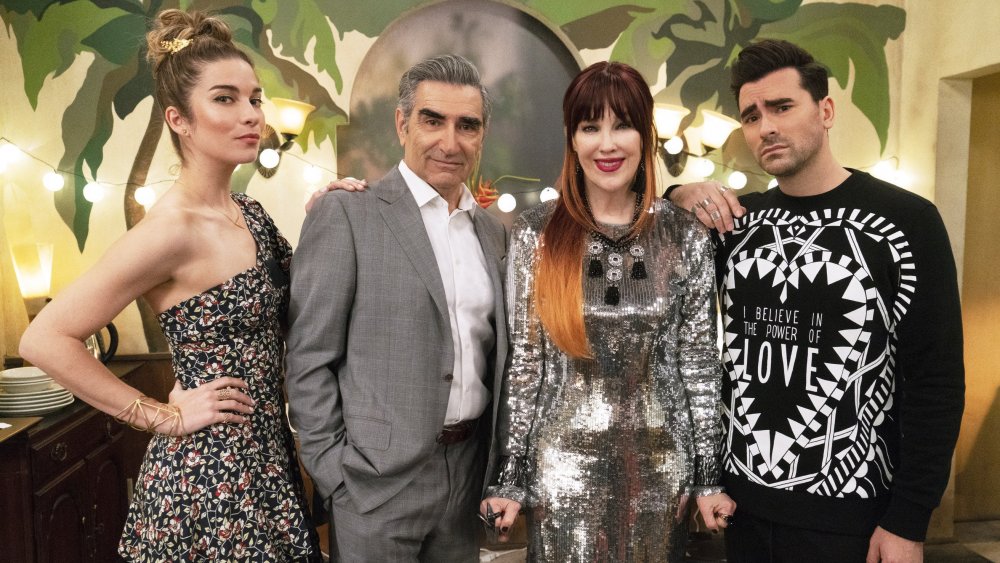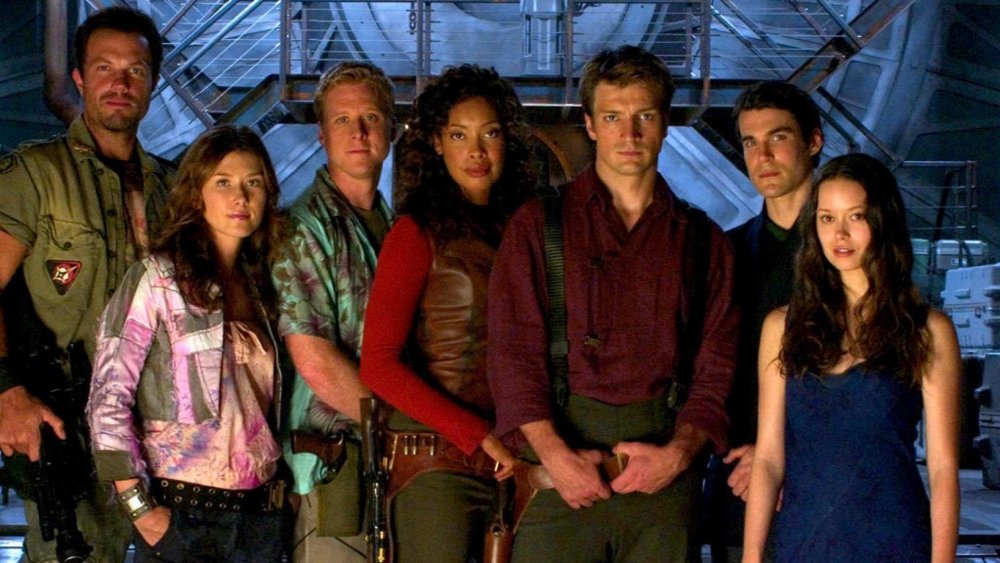The Real Reason There Aren't TV Show Theme Songs Anymore
We are undoubtedly living in a golden age of television, and with streamers lining up to throw money at innovative creators, it looks unlikely to end any time soon. Whether your bag is network sitcoms, prestige cable dramas, or wild new streaming series, today's TV landscape has something for everyone — but, increasingly, there's one thing that it doesn't have.
It's happened gradually, so you may not have noticed, but the TV theme song seems to be a dying art form. Sure, lots of new shows have distinctive musical stingers over their opening credits, and there are even a few outliers that sport classic tunes of the sort we're talking about. But we're not specifically discussing stingers (like the bluesy little number that leads off Better Call Saul), or rocking instrumentals (like the one that got us pumped for the hard-hitting Luke Cage), or existing pop tunes plugged in over the opening credits (like Jace Everett's "Bad Things," which opened True Blood). We're talking about original songs, with lyrics, written specifically for the show.
Here's a little exercise: What do you think of when we say, "Now this is a story all about how..." or, "Here's the story of a lovely lady..." or, "Just sit right back and you'll hear a tale, a tale of a fateful trip..."? It's a trick question, of course; we know exactly what you think when you hear those things, and the TV producers that commissioned those songs knew that getting stuck in your head and never leaving was one of the purposes they would serve. You might notice, though, that they also serve another, very specific purpose — and it's one that modern TV productions don't have quite as much of a need for.
TV theme songs serve an outdated purpose
Theme songs to shows like The Fresh Prince of Bel-Air, The Brady Bunch, and Gilligan's Island didn't just set the mood — they set up the entire premise of the show with their lyrics. Imagine, for example, that you've never seen a single episode of The Brady Bunch. You're coming in cold on an episode midway through, oh, say, the third season. If the show simply opened with a jazzy instrumental, it might take you a while to make sense of what's so special about this family. But since its iconic theme song explains the base narrative right over the opening credits — it's a story of a lovely lady and a man named Brady, who fell in love and became a blended family, the Brady Bunch – you're already up to speed, no matter when you're tuning in.
This was particularly useful in the days when network television was pretty much the only game in town, and there was no streaming or DVRs. (Heck, VCRs weren't even in widespread use yet.) Series built their audiences through word of mouth, and if you didn't happen to start watching a show from its very first episode, you were probably going to need a brief synopsis before settling in.
The theme song accomplished this beautifully, setting the stage for what was to come while also serving as a nice, familiar intro for those already in the know. These days, however, series don't need to explain the entire premise before each episode. Audiences are much more likely to seek out and watch them from the beginning, and if they want to know more about what they're getting into, it's super easy to get all the information they need with the devices we carry around in our pockets every day.
Modern viewers have shorter attention spans
This is far from the only purpose that theme songs serve, but there's another modern-day consideration that has caused producers and executives to lean away from traditional theme songs: the attention spans of contemporary audiences. That's not to say that today's viewers aren't just as likely to get sucked in to a favorite show, but in the days of The Brady Bunch and the like, there were simply far fewer choices. Audiences were more inclined to park on one TV channel and go along for the ride — whereas today, there are hundreds broadcast and cable channels and a ton of streaming services vying for viewers' attention.
While it might seem like a bit of an unfounded fear, the truth is that most producers would rather not take the chance of losing even a small portion of their audience with an overly long, drawn-out theme song. Industry professionals recognized this years ago, and if anything, that notion has likely become even more prevalent. Speaking with Today all the way back in 2006, television historian Tim Brooks said, "Almost all shows have music, but it's generic, it's scene-setting, it's short. Producers feel, rightly or wrongly, that that interruption, if you will, is going to lose viewers."
It should be said that there isn't a ton of data to support the notion that extended theme songs will prompt viewers to click away to the next option, but that fear on the part of producers is part of the reason why TV themes are becoming shorter, or even nonexistent. There's another reason why modern series tend to keep their theme songs short, though — and as one might expect, it also has to do with dollars and cents.
TV theme songs take away from valuable storytelling time
Commercials have always been a part of the television experience, and these days, broadcast and cable networks are airing more ads than ever before (via Forbes). As of 2018, it was determined that anywhere between 11 and 15 minutes per hour of broadcast time are filled with commercials, and considering that many streamers also have ad-supported plans, even cord-cutters can't escape them completely.
But what does this have to do with theme songs, you might ask? It's simple: each episode only has a certain amount of time to tell its story, and an extra-long theme song cuts into that time. This is especially true of half-hour, character-driven shows like the recently-ended (and well-loved) Schitt's Creek, which really had no opening credits sequence to speak of. Its jazzy, waltz-y theme simply poked its head in for a few seconds over the title card, then promptly exited.
This is another trend that's been getting steeper for some time, and even some older series with traditional theme songs ended up severely curtailing their opening sequences in later years. Look at the Friends theme song, which had a good portion of its catchy theme ("I'll Be There for You" by The Rembrandts) chopped to "fit an episode into today's standard half-hour time slot without sacrificing any of its story line," or Grey's Anatomy, which simply nixed its theme ("Cosy in the Rocket" by Psapp) in later seasons.
Having said all of this, though, it's probably occurred to you that there are a few outliers — modern shows that feature traditional theme songs, complete with lyrics, just like old times. This raises the question: Are TV themes really on their way out for good, or is this just an extended trend that might one day reverse itself?
Could TV theme songs make a comeback?
There are a few amazing, iconic, and pretty long traditional theme songs that have been created in the last couple of decades. To name a few: "The Ballad of Serenity" from Firefly; "You've Got Time" from Orange Is the New Black; "At Least It Was Here" from Community; and "Big Bang Theory Theme" from, well, you know. The art form may have experienced a severe decline, but that doesn't mean it still can't be done well.
In fact, the lyrical theme song just might make a comeback for one simple reason: a lot of the reasons why they've fallen by the wayside are specific to network and cable television, and more and more of the must-see new series are debuting on streaming platforms like Netflix and Disney+. As streaming becomes increasingly dominant, it's possible that the theme song could come back into vogue — not with overtly explanatory lyrics, but ones that get the viewer primed and in the mood for what they're about to watch (like the aforementioned "Ballad of Serenity," the absolute best example of this we can think of).
One only hope that this is the case, because as much as viewers can appreciate a rock-solid stinger or a short, provocative instrumental theme over a well-crafted title card, some series just cry out for each episode to be announced by an awesome original tune.
